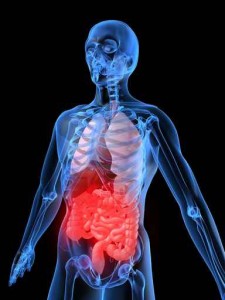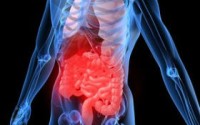Treatment for Stomach flu and Intestine Infections
 Stomach flu Diagnosis
Stomach flu Diagnosis
The first and foremost important step in bacterial gatroenteritis is to evaluate the severity of dehydration because it can lead to irreversible kidney failure if not treated in time. This can be done by clinical examination of skin turgor, tongue moisture and urine output. Even the mental state may be an indication of dehydration.
Before treating gastroenteritis, it is important to identify the causative pathogen as it can be associated with other microorganisms like a viral infection. Clinical evaluation is usually sufficient but may require stool tests at time. Stool examination for fecal white blood cells and parasitic ova (eggs) needs to be done in cases with blood and mucus with stools. Stool culture can also be done to find out the specific infective organisms.
Rapid enzyme assays are tests for some specific toxins like Shiga toxin and toxins produced by some serotypes of enterohemorrhagic E. coli. To determine the hydration and acid base status, serum electrolytes (Sodium, potassium) and arterial blood gases are monitored. Blood urea and creatinine are evaluated for checking renal function.
Treatment for Stomach flu
Oral or IV Rehydration
The cornerstone of the treatment is to avoid water and electrolyte depletion. Rehydration therapy will replace the water and electrolytes. Supplementation may be orally or intravenously (IV).
A basic oral rehydration solution (ORS) which can made is as follows:
Sugar-30 ml (6 level tsp)
Salt- 2.5 ml(1/2 level tsp)
Clean potable water – 1 litre
For patients who are not able to consume the ORS like withpersistent vomiting, decreased consciousness or any other associated debilitating illness, intravenous rehydration has to be considered.
Medication for Stomach Flu
Antidiarrheal agents are used to stop diarrhea are safe for patients over 5 years of age with watery diarrhea. As a general rule of thumb these drugs should be avoided within the first few days of infection. It is particularly contraindicated in infections with Clostridium difficile and E coli O157: H7 where it may cause further deterioration of the condition. Effective antidiarrheals include loperamide 4 mg orally initially followed by 2 mg orally for each episode of watery diarrhea . A patient should not exceed a maximum dose of 6 doses/ day or 16 mg/day.
Antibiotics are not recommended in all cases of infective gastroenteritis. It is, however, indicated for the following infections / pathogens:
Vibrio cholera
Ciprofloxacin- 1 gm once only.
Doxycycline- 300 mg single dose.
Clostridium difficile
Metronidazole- 250 mg four times a day or 500 mg three times a day for 10 days.
Vancomycin- 125-250 mg four times a day for 10 days.
Shigella
Ciprofloxacin- 500 mg orally twice a day for 5 days.
TMP/SMX (trimethoprim/sulfamethoxazole)- 1 DS tablet twice a day.
Campylobacter jejuni
Ciprofloxacin- 500 mg twice a day for 5 days.
Azithromycin- 500 mg once a day for 5 days.
Probiotics using Llactobacillus attempts to restore the normal intestinal flora and may help in relieving the symptoms. It is further assisted with the use of Saccharomyces boulardii. Live culture yogurt may also be useful but should be used cautiously as secondary lactose intolerance may arise and the diarrhea can worsen.



Very nice post. I simply stumbled upon your weblog and wanted to
mention that I have really enjoyed browsing your blog posts.
After all I will be subscribing in your feed
and I am hoping you write once more very soon!